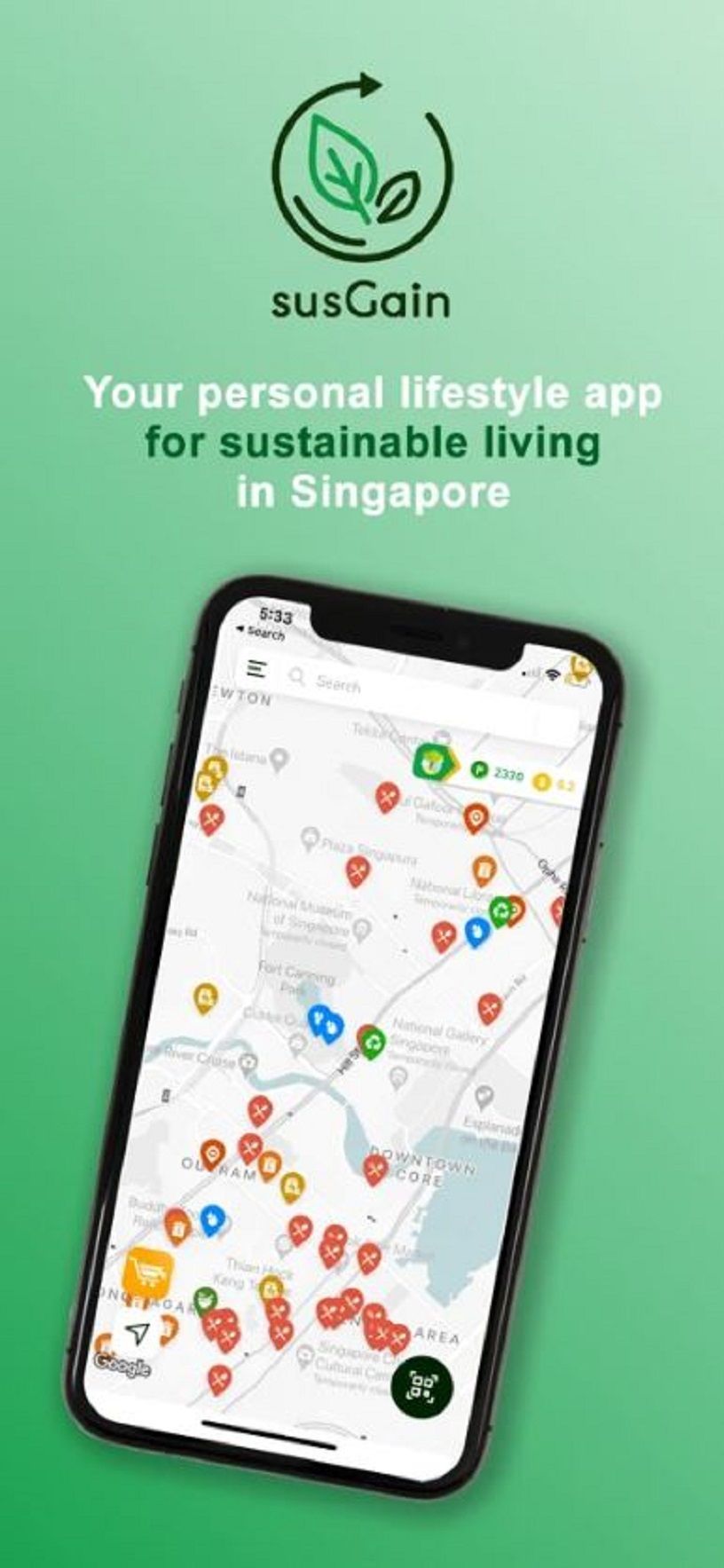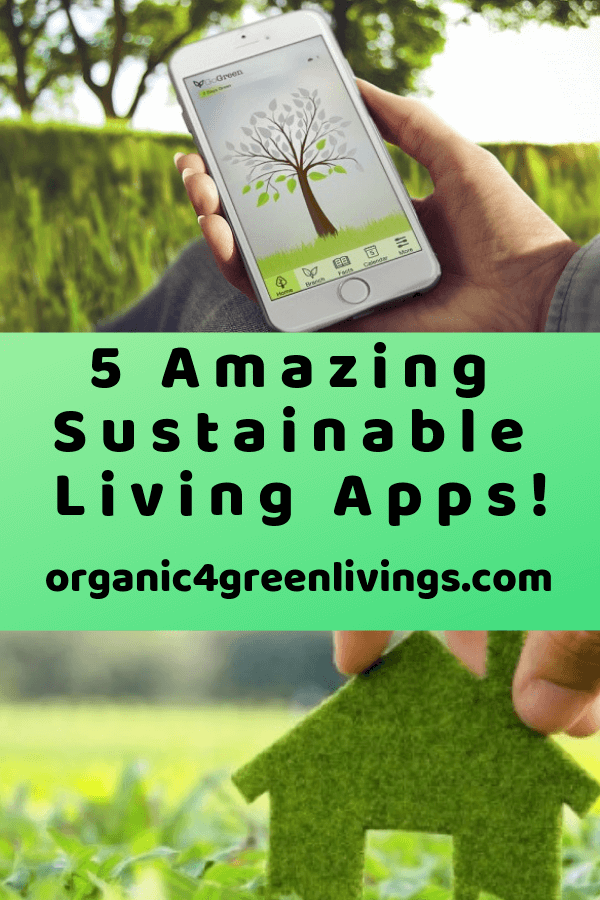The Best Apps to Help You Live a More Sustainable Life: A Greener Digital Footprint
Our planet’s health is inextricably linked to our daily choices. While large-scale systemic change is crucial, individual actions hold immense power. Fortunately, technology offers a helping hand, with a growing number of apps designed to make sustainable living easier and more accessible. This isn’t about sacrificing convenience; it’s about integrating eco-conscious practices seamlessly into your life. Let’s explore some of the best apps that can help you tread more lightly on the Earth.
Beyond the Recycling Bin: Apps for Every Green Goal
Sustainable living isn’t a one-size-fits-all approach. It’s a journey with many pathways, and the right app can guide you down a path that aligns with your values and lifestyle. Whether you’re focused on reducing waste, minimizing your carbon footprint, supporting ethical businesses, or simply learning more about environmental issues, there’s an app for you.
Category: Waste Reduction & Recycling
| App Name | Key Features | Pros | Cons |
|---|---|---|---|
| Recycle Coach | Localised recycling guidelines, reminders | Easy to use, hyperlocal information | Data availability varies by region |
| Olio | Food sharing app, connects users with surplus | Reduces food waste, builds community | Relies on user participation |
| HappyCow | Vegan/vegetarian restaurant locator | Simplifies finding plant-based options | Limited in some areas |
Category: Carbon Footprint Tracking & Reduction
| App Name | Key Features | Pros | Cons |
|---|---|---|---|
| Ecosia | Search engine that plants trees | Supports reforestation, privacy-focused | Slightly slower than major search engines |
| Carbon Tracker | Tracks your carbon footprint, offers personalized tips | Comprehensive data, actionable advice | Requires detailed input |
| JouleBug | Gamified carbon footprint tracking & challenges | Fun, motivating, community-driven | Feature set might be overwhelming for some users |
Category: Ethical Consumption & Sustainable Businesses
| App Name | Key Features | Pros | Cons |
|---|---|---|---|
| Good On You | Brand rating system based on ethical & environmental practices | Easy comparison of brands, promotes transparency | Data may not cover all brands |
| Think Dirty | Product ingredient analysis, safety & sustainability ratings | Helps make informed choices about personal care | Requires significant data input |
| Open Food Facts | Provides detailed information on food products | Supports informed food choices, transparency | Can be overwhelming with detailed information |
Beyond the Apps: Building a Sustainable Lifestyle
While these apps are valuable tools, they are merely a part of a larger picture. True sustainable living encompasses mindful consumption, reduced waste, conscious energy usage, and engagement with local initiatives. These apps can assist in tracking progress and identifying areas for improvement, but the ultimate responsibility rests with individual action and commitment. Consider supplementing app usage with these actions:
- Embrace minimalism: Declutter your home and consciously consume less.
- Support local farmers markets: Reduce your carbon footprint and support local economies.
- Reduce, reuse, recycle: Prioritize reducing consumption before recycling.
- Advocate for change: Support policies and businesses promoting sustainability.
- Educate yourself: Stay informed about environmental issues and solutions.
The Future of Green Apps:
The landscape of sustainable living apps is constantly evolving. We can expect to see more innovative apps emerge, integrating advanced features like AI-powered waste sorting, personalized sustainability plans, and augmented reality experiences that further enhance our ability to live more sustainably. By embracing these technological tools and integrating mindful practices into our daily routines, we can collectively work towards a healthier planet. The journey towards sustainability starts with a single step—and the right app can make that step much easier.

Additional Information
The Best Apps to Help You Live a More Sustainable Life: A Detailed Analysis
The app market offers a growing number of tools designed to assist individuals in adopting more sustainable lifestyles. However, “best” is subjective and depends on individual needs and priorities. To provide a comprehensive analysis, we’ll categorize these apps and delve into their strengths and weaknesses:
I. Tracking and Reducing Your Carbon Footprint:
-
Ecosia: While not strictly an app (it’s a search engine), Ecosia deserves mention. A significant portion of its advertising revenue is used to plant trees, making it a passive yet impactful way to contribute to environmental sustainability. Strength: Simple, effective, and integrates seamlessly into daily routines. Weakness: Relies on advertising revenue, so impact is indirect.
-
Carbon Tracker: Apps like this (and many others emerging) aim to track your carbon footprint through various activities like transportation, energy consumption, and diet. They often use algorithms to estimate your impact and offer personalized recommendations for reduction. Strengths: Provides quantifiable data, raising awareness of one’s environmental impact; offers tailored advice. Weaknesses: Accuracy depends on data input and algorithm sophistication; can feel overwhelming or judgmental if not carefully designed.
-
JouleBug: This app focuses on gamification, encouraging sustainable behaviors through challenges and rewards. It often incorporates social elements, fostering community engagement. Strengths: Motivational and engaging; promotes positive peer pressure. Weaknesses: Success relies on user participation and the app’s community; gamification might not appeal to all users.
II. Waste Reduction and Recycling:
-
HappyCow: While not strictly focused on waste, this app helps you find vegan and vegetarian restaurants near you. Reducing meat consumption significantly reduces your carbon footprint and environmental impact. Strengths: Promotes plant-based diets; supports ethical and sustainable businesses. Weaknesses: Limited utility for non-vegetarians; availability depends on location.
-
Recycle Coach: This app provides personalized recycling information based on your location. It helps users understand what can and cannot be recycled in their area, preventing contamination and improving recycling efficiency. Strengths: Addresses a crucial aspect of waste management; highly localized information. Weaknesses: Accuracy depends on municipal data accuracy and app updates; not universally available.
III. Sustainable Shopping and Consumption:
-
GoodGuide: This app provides information on the environmental and social impact of products, helping consumers make informed purchasing decisions. It assesses products based on various criteria, including sustainability, ethical sourcing, and health. Strengths: Promotes conscious consumerism; empowers consumers to make responsible choices. Weaknesses: Requires extensive product databases; data might not be available for all products.
-
Think Dirty: Similar to GoodGuide, this app focuses on the toxicity of beauty and personal care products, guiding users towards safer and more sustainable alternatives. Strengths: Addresses a specific area of consumer concern; promotes healthier and more environmentally friendly choices. Weaknesses: Database might not be exhaustive; some information may be subjective.
IV. Sustainable Transportation:
- Citymapper: While not exclusively focused on sustainability, Citymapper assists users in finding the most efficient and often the most environmentally friendly transportation options in urban areas, prioritizing public transport and walking/cycling routes. Strengths: Integrates various transport modes; optimizes routes for efficiency. Weaknesses: Relies on accurate real-time data; not always available in all locations.
Analysis and Considerations:
-
Data Privacy: Be mindful of the data these apps collect and their privacy policies. Some apps require access to location and other personal information.
-
Accuracy and Reliability: The accuracy of information provided by these apps varies. Always double-check information with official sources if necessary.
-
User Interface and Experience: The usability and design of the app should be considered. A well-designed app is more likely to encourage consistent use.
-
App Maintenance and Updates: Ensure the app is actively maintained and receives regular updates to ensure data accuracy and functionality.
In conclusion, the “best” apps for sustainable living are those that best align with your personal goals and lifestyle. Combining several apps focusing on different aspects of sustainability can provide a more holistic approach to minimizing your environmental impact. Remember that technology is a tool, and its effectiveness depends on the individual’s commitment to making sustainable choices.

